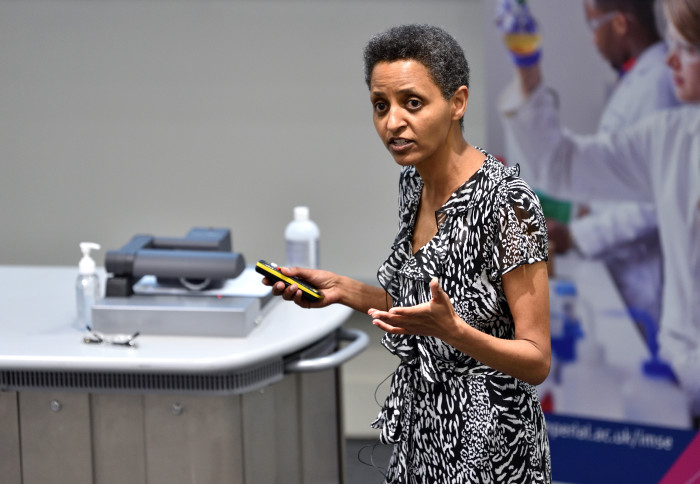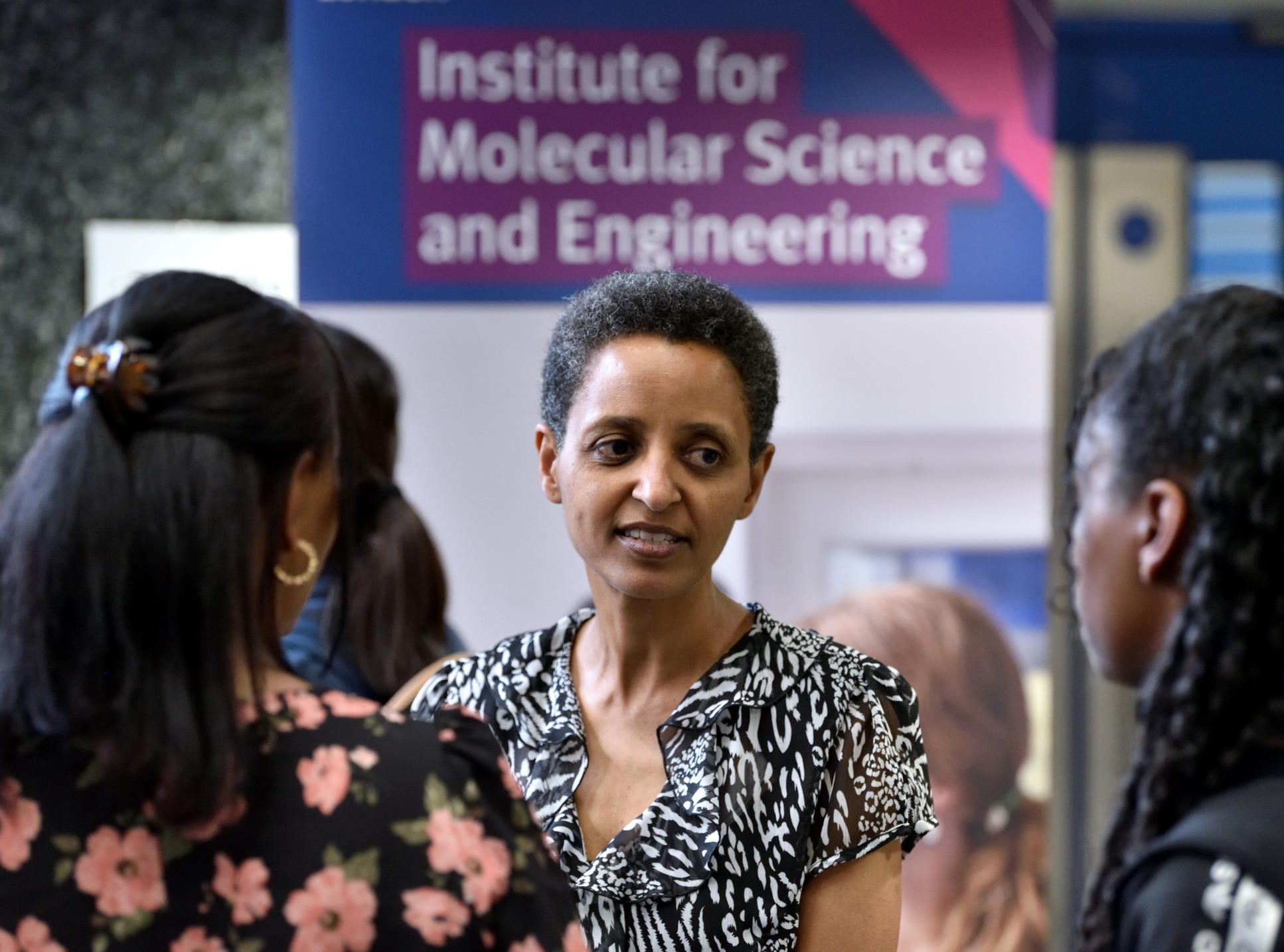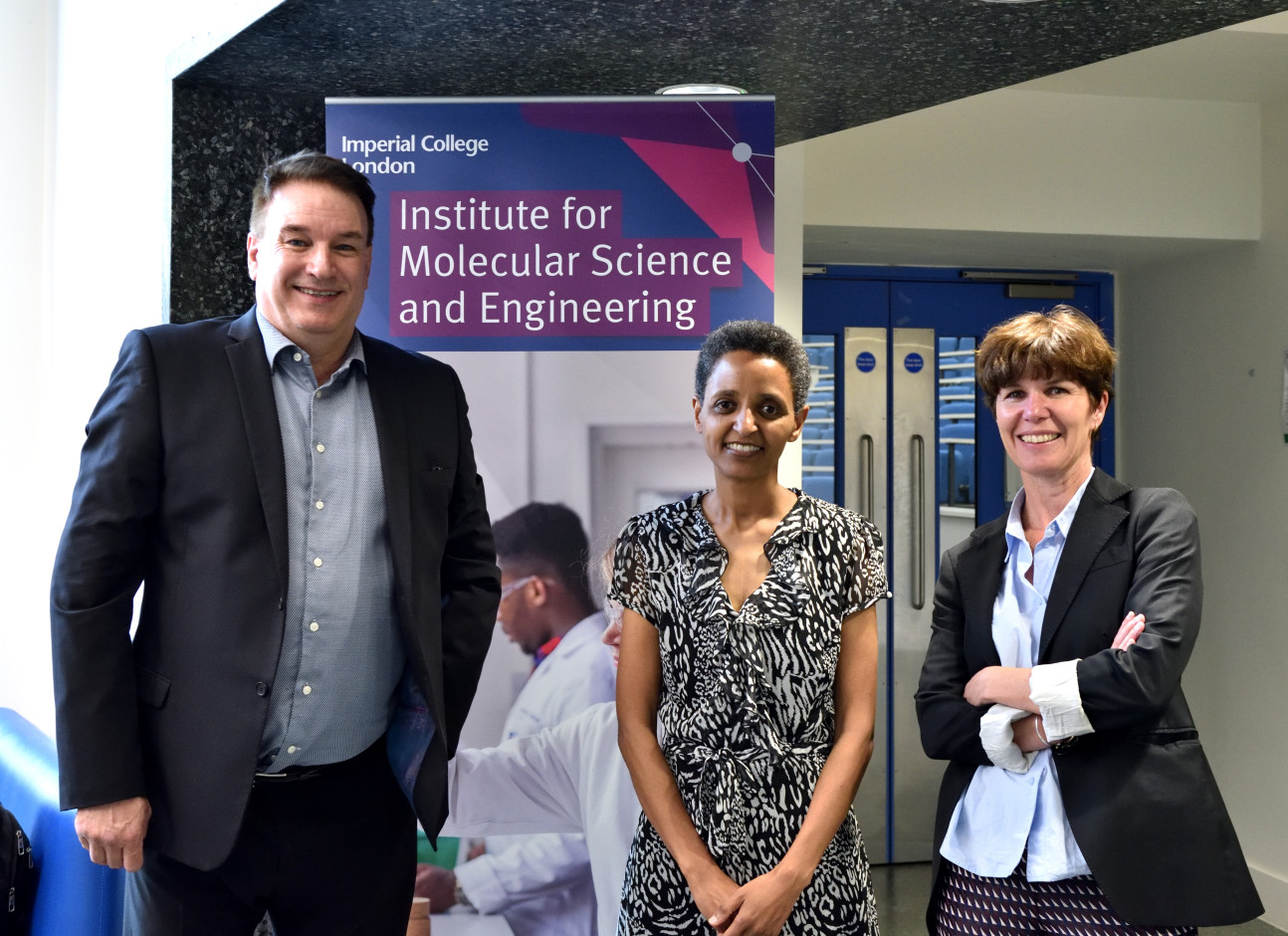Electrochemistry and climate equity: IMSE's 4th annual lecture

Sossina Haile giving the 4th IMSE annual lecture in June 2022
Sossina Haile gave an overview of her work on enabling renewable energy storage at grid scale.
The professor of Materials Science and Engineering at Northwestern University (IL, USA), one of the world’s preeminent fuel cell electrochemists, is widely recognised for her work in establishing a new class of fuel cells.
She has received many awards, having been recognised by the U.S. National Science Foundation, American Institute of Chemists, the World Academy of Ceramics, and the Materials Research Society.
Storing renewable electricity in chemical form
Prices for producing renewable energy have been falling fast over the last decade, and are now approaching or undercutting conventional fossil fuel sources. However, the major renewable sources of energy – solar and wind – are both intermittent sources of energy. This energy needs to be harvested and stored so that it can be used continuously as electricity.

At present, the biggest form of electrical energy storage used worldwide is in pumped hydroelectric infrastructure, i.e. pumping water between two reservoirs at different elevations. An alternative solution is to use the excess electrical energy to generate a chemical fuel, such as hydrogen or ammonia. This energy can then be reconverted into electrical energy using a fuel cell, a device which generates electrical energy from chemical reactions.
Professor Haile been leading the development of solid acid fuel cells. The core of this cell is a layer of a solid inorganic acid salt. Her work has increased the power density of these cells, which makes them more economical to use.
Unlike a battery, fuel cells rely on the continuous supply of a fuel to keep functioning. This means they do not run down and need recharging. Professor Haile’s work has developed solid oxide fuel cells that not only run on hydrogen, but incorporate the production of that hydrogen from methanol or ammonia within the cell. This is useful as methanol and ammonia are both more easily transported and stored than hydrogen, so this reduces fuel cost.
With further development, these cells will be part of the adoption of renewable energy at grid scale. Fuel cells can capture intermittent excess energy and store it in chemical form. This is more chemically and resource-efficient than using a battery. The fuel could then be piped to another location for use, or used where it is to regenerate electricity for the grid. This and other storage technologies will be essential for widespread adoption of renewable energy and reduction of emissions of CO2 worldwide.
Climate equity
Professor Haile pointed out CO2 emissions per person differ widely around the world, from an average of 18 tonnes per person per year in North America, to 1.1 tonnes per person per year in Africa. Energy use is correlated with the UN’s Human Development Index: on average, Professor Haile pointed out “the more energy used, the higher the quality of life”. Delivering a more equitable world is therefore going to require more energy, but this must not be carbon-intensive. Drawing on her Ethiopian heritage, she looked at the hydroelectric power generation potential of the Great Ethiopian Renaissance Dam, and the tangle of political and financial interests around that project. She called for economic growth in the global south to be powered by solar, wind and hydroelectric power.
About IMSE
 The Institute of Molecular Science and Engineering was set up in 2015. It promotes a convergent science approach to solving global challenges, accelerating innovation by transcending disciplinary boundaries in engineering, science, medicine and business. Developing sustainable technologies is a core research theme.
The Institute of Molecular Science and Engineering was set up in 2015. It promotes a convergent science approach to solving global challenges, accelerating innovation by transcending disciplinary boundaries in engineering, science, medicine and business. Developing sustainable technologies is a core research theme.
The Dr Theo George Wilson Lecture is the flagship event in IMSE's calendar of activities. It draws together a diverse audience from across Imperial’s student and staff body, as well as from our community of friends and stakeholders. Our objective is to inspire and engage the IMSE community by increasing its awareness of wider challenges and activities.
Article text (excluding photos or graphics) © Imperial College London.
Photos and graphics subject to third party copyright used with permission or © Imperial College London.
Reporter
Dr Isabella von Holstein
Department of Computing